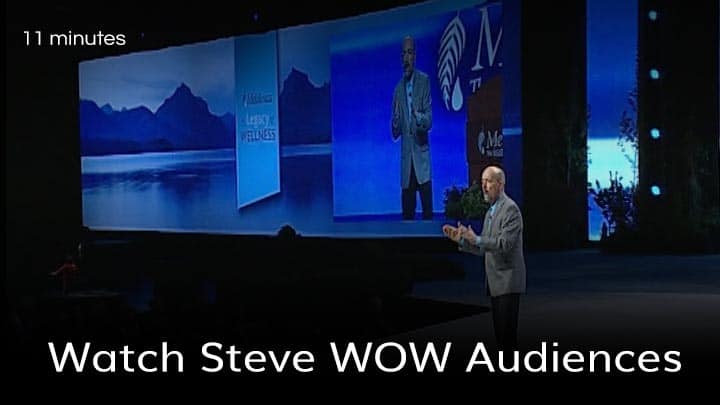Blog
Workplace Relationships: Care & Respect Between Colleagues
Love in the Workplace: How Positive Relationships Drive Business Success and Employee Engagement
In today’s competitive business landscape, companies are discovering that the secret sauce to extraordinary success. It isn’t just found in quarterly reports or cutting-edge technology. It’s found in the quality of workplace relationships and the culture of care that permeates every level of the organization. When I talk about “love in the workplace,” I’m not referring to romantic entanglements that create HR nightmares. I’m talking about something far more powerful: the transformative impact of genuine care, respect, and positive connections between colleagues that can revolutionize your corporate culture and bottom line.
Workplace Relationships: Redefining Love in Professional Settings
As someone who has spent decades helping organizations shift their mindsets from “Woe is me” to “Wow is me,” I’ve witnessed this firsthand. Companies that embrace authentic workplace relationships consistently outperform their competitors. Love in the workplace manifests as compassion, empathy, genuine interest in colleagues’ wellbeing, and creating an environment where every team member feels valued and appreciated.
This isn’t about being soft or compromising professional standards. It’s about recognizing that when employees feel genuinely cared for and connected to their colleagues, they become more engaged, productive, and committed to organizational success. The data supports this: companies with highly engaged workforces are 21% more profitable and experience 10% higher customer metrics than their less-engaged counterparts.
The Business Case for Workplace Relationships
Increased Employee Retention and Reduced Turnover Costs
One of the most significant financial benefits of fostering positive workplace relationships is the dramatic reduction in employee turnover. When people feel connected to their colleagues and genuinely appreciated for their contributions, they’re far less likely to jump ship for marginally better opportunities elsewhere.
Consider this: the average cost of replacing an employee ranges from 50% to 200% of their annual salary when you factor in recruitment, training, lost productivity, and knowledge transfer. Companies that prioritize building strong workplace relationships often see retention rates improve by 40% or more, translating to substantial cost savings and improved operational continuity.
Enhanced Team Collaboration and Innovation
Love in the workplace creates psychological safety—the belief that you can express ideas, concerns, and mistakes without fear of negative consequences. This environment is crucial for innovation and creative problem-solving. When team members trust each other and feel supported, they’re more willing to take calculated risks, share unconventional ideas, and collaborate effectively on complex projects.
Google’s Project Aristotle, which studied hundreds of teams to understand what makes them effective, found that psychological safety was the number one factor distinguishing high-performing teams from average ones. Teams that felt safe to be vulnerable, ask questions, and admit mistakes consistently outperformed those focused solely on individual talent or technical skills.
Improved Customer Service and Client Relationships
Employees who feel loved and appreciated at work naturally extend that positive energy to customer interactions. When your team members feel valued, they’re more likely to go above and beyond for clients, handle difficult situations with patience and creativity, and represent your brand with genuine enthusiasm.
This creates a positive feedback loop: satisfied customers become loyal advocates, leading to increased revenue and referrals, which in turn creates more opportunities for employee recognition and advancement, further strengthening workplace relationships.
Workplace Relationships: Practical Strategies for Building Love in Your Workplace
1. Start with Leadership Authenticity
Creating a culture of love begins at the top. Leaders must model genuine care and interest in their employees’ professional development and personal wellbeing. This doesn’t mean being everyone’s best friend or compromising professional boundaries. It means being authentically interested in helping team members succeed and showing appreciation for their contributions.
Effective leaders regularly check in with team members about their goals, challenges, and ideas. They remember important personal details and celebrate both professional achievements and personal milestones. They admit their own mistakes and vulnerabilities, creating space for others to do the same.
2. Implement Regular Recognition and Appreciation Programs
Recognition is one of the most powerful ways to show love in the workplace. However, effective recognition goes beyond annual performance reviews or generic “employee of the month” programs. It should be timely, specific, and meaningful to the individual being recognized.
Create multiple channels for recognition: peer-to-peer appreciation systems, manager spotlights, team celebrations, and public acknowledgment of achievements. Make sure recognition is tied to specific behaviors and outcomes rather than general praise, and vary the types of recognition to appeal to different personality types and preferences.
3. Foster Cross-Departmental Connections
Many workplace relationship challenges stem from departmental silos that prevent employees from understanding and appreciating each other’s contributions. Implement programs that encourage cross-functional collaboration and relationship building.
Consider organizing lunch-and-learn sessions where departments share their expertise, creating mixed-department project teams, or hosting regular social events that bring different groups together. When employees understand how their colleagues’ work contributes to overall success, they develop greater appreciation and empathy for each other.
4. Prioritize Professional Development and Growth
One of the most tangible ways to show love for employees is investing in their professional development. This demonstrates that you’re committed to their long-term success, not just their current productivity. Provide opportunities for skill development, mentorship, cross-training, and advancement.
Create individual development plans with each team member, offer tuition reimbursement or training allowances, and provide stretch assignments that help employees build new capabilities. When people feel that their employer is invested in their future, they’re more likely to invest their best efforts in the company’s success.
5. Create Safe Spaces for Honest Communication
Love in the workplace requires open, honest communication channels where employees feel safe expressing concerns, ideas, and feedback without fear of retaliation. This includes both formal mechanisms like suggestion boxes and employee surveys, as well as informal opportunities for dialogue.
Train managers to actively listen, ask clarifying questions, and respond constructively to employee input. Implement regular one-on-one meetings, team retrospectives, and all-hands sessions where leadership shares company updates and addresses employee questions transparently.
Workplace Relationships: Overcoming Common Obstacles to Workplace Love
Addressing the “Professionalism” Concern
Some business leaders worry that emphasizing love and relationships in the workplace will compromise professionalism or accountability. The opposite is actually true. When people feel genuinely cared for and connected to their colleagues, they typically hold themselves and others to higher standards because they don’t want to let their team down.
The key is establishing clear expectations and boundaries while maintaining warmth and support. You can care deeply about someone’s success and wellbeing while still holding them accountable for their performance and behavior.
Managing Difficult Personalities and Conflicts
Not every employee will immediately embrace a more relationship-focused workplace culture. Some may be skeptical, resistant, or even disruptive. The key is consistency and patience while maintaining clear expectations for respectful behavior.
Address conflicts directly and constructively, focusing on specific behaviors rather than personality traits. Provide coaching and support for employees who struggle with interpersonal relationships, and don’t hesitate to make difficult decisions when someone’s behavior consistently undermines team dynamics despite intervention efforts.
Scaling Love in Large Organizations
Building genuine relationships becomes more challenging as organizations grow, but it’s not impossible. Focus on creating systems and processes that support relationship building at every level, from small team interactions to company-wide initiatives.
Implement management training programs that emphasize relationship skills. Create employee resource groups that foster connections around shared interests or backgrounds. Use technology platforms that facilitate communication and recognition across the organization.
Workplace Relationships: Measuring the Impact of Workplace Love
Key Performance Indicators
To justify investment in workplace relationships and culture, it’s important to track relevant metrics:
- Employee engagement scores and participation in voluntary activities
- Retention rates by department and tenure
- Internal promotion rates and career advancement patterns
- Customer satisfaction scores and client retention
- Productivity metrics and project completion rates
- Absenteeism and healthcare utilization rates
- Revenue per employee and profitability measures
Regular Culture Assessments
Conduct regular surveys and focus groups to assess the health of workplace relationships and culture. Ask specific questions about trust, communication, recognition, and overall job satisfaction. Track trends over time and compare results across different departments or teams to identify areas of strength and opportunity.
Workplace Relationships: The Future of Love in Business
As we move further into the 21st century, the companies that thrive will be those that recognize human connection as a competitive advantage rather than a nice-to-have luxury. The COVID-19 pandemic accelerated remote and hybrid work arrangements, making intentional relationship building even more critical and challenging.
Organizations that master the art of creating love in the workplace—whether in-person, virtual, or hybrid environments—will attract and retain top talent, deliver superior customer experiences, and achieve sustainable growth. They’ll create cultures where people choose to bring their best selves to work each day, not because they have to, but because they want to contribute to something meaningful alongside people they genuinely care about.
Workplace Relationships: Your Mindset Shift Starts Today
Remember, mindset is everything. If you approach workplace relationships as an investment in your company’s future rather than a distraction from “real work,” you’ll begin to see opportunities for connection and care in every interaction. Every conversation becomes a chance to show appreciation, every meeting becomes an opportunity to build trust, and every challenge becomes a chance to support each other.
The question isn’t whether your organization can afford to invest in workplace love and relationships—it’s whether you can afford not to. In today’s competitive business environment, companies that fail to prioritize human connection will find themselves struggling to attract talent, retain customers, and maintain market position.
Your mindset writes the story of your organization. What kind of story are you writing? Is it one where people feel valued, connected, and inspired to do their best work? Or is it one where relationships are transactional and employees are simply checking boxes until they find something better?
The choice is yours, and the transformation can begin today with a simple shift in perspective. Recognize that love in the workplace isn’t just about feeling good. It’s about achieving extraordinary results through the power of genuine human connection.
Steve Rizzo is a Hall of Fame keynote speaker, former national headline comedian, and mindset expert who helps organizations shift from “Woe is me” to “Wow is me.” His practical strategies for building positive workplace cultures have transformed companies across the globe. To learn more about bringing Steve’s message to your organization, visit steverizzo.com.


